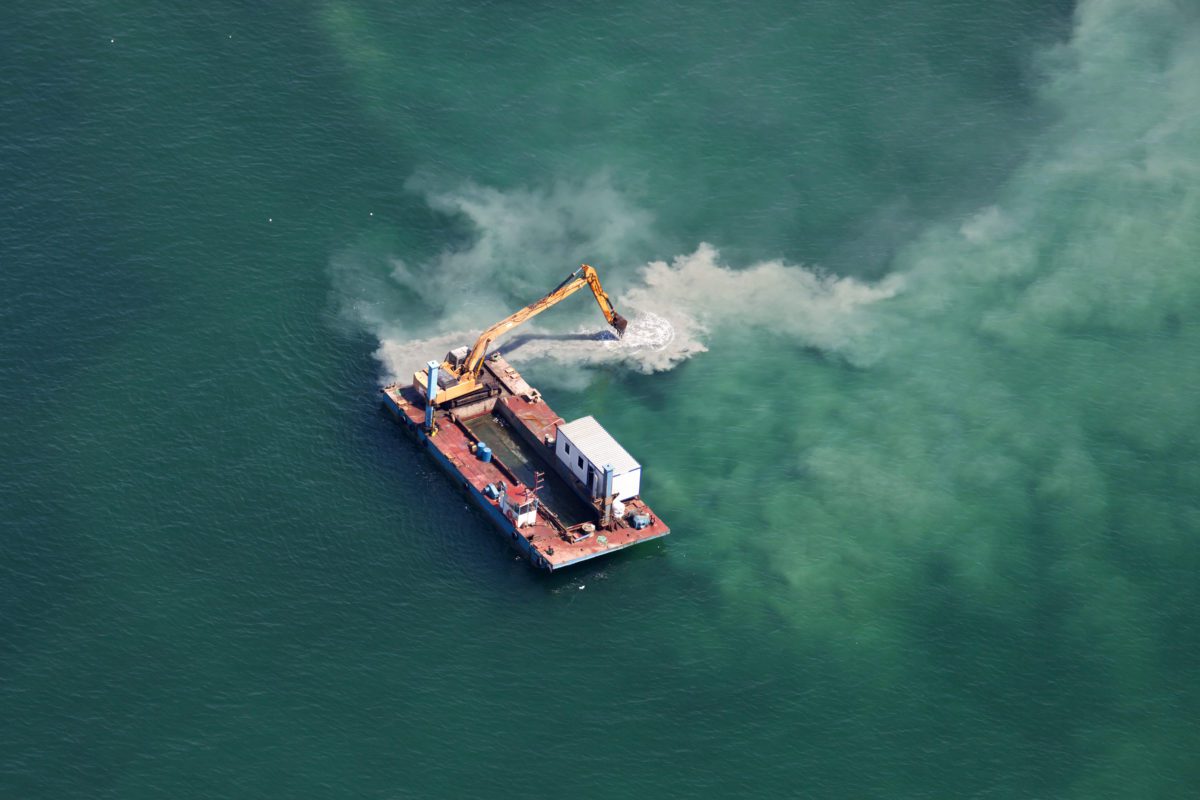Sediment Remediation CEQA
By Bridgette R. DeShields, Principal, Technical Director - Permitting and Planning
Kat Ridolfi, Senior Consultant, Technical Director - Toxicology, Health, and Ecological Sciences
Miranda Henning, BCES, Managing Principal, Business Director - Health and Ecology

OUR CHALLENGE
A nearshore area in California was impacted by polycyclic aromatic hydrocarbons (PAHs), likely as a result of operations at a historical manufactured gas plant along with other anthropogenic sources. The Remedial investigation found that there was a potential for adverse effects to aquatic organisms but no significant risks to human health.
A combination of sediment dredging and capping is the recommended remedial approach to reduce ecological exposures to PAHs. This approach will be coupled with erosion protection measures (to mitigate scour from ferry and boat traffic and other foreseeable operational uses), long-term monitoring, and institutional controls. This project required environmental review under the California Environmental Quality Act (CEQA) to assess potential environmental consequences of the project, including the direct and indirect physical changes to the environment associated with remedy implementation. This is where Integral stepped in to help.
OUR APPROACH
Under direction of the state cleanup oversight agency (the lead CEQA agency), the Integral team developed an Initial Study/Mitigated Negative Declaration (IS/MND), released for public review in 2021. The environmental document assessed potential project impacts and featured technical analyses of air quality, transportation, biological and cultural resources, and other factors. These studies were completed over a 2-year period with substantial collaboration with the lead agency, project sponsor, and public agencies, as well as input from community groups and commercial tenants. Integral determined that implementing mitigation measures for biological and cultural resources, recreation, and transportation would reduce impacts to less than significant. The lead agency certified the final IS/MND in early 2022.
OUR IMPACT
Integral’s environmental document provided a key piece of analysis to inform decisionmakers and the public about the potential impacts of the project. The team’s active participation in the complex project design and permitting process and important relationships with the engineering design team, regulatory agencies, and other stakeholders, were key in facilitating the refinement of project components to reduce environmental impacts and eliminate the need for an Environmental Impact Report. Integral helped to also streamline the process through a proactive development of control measures and management plans to effectively reduce reliance on mitigation measures. The Integral team’s approach will ultimately facilitate project implementation and drive remedial efforts forward.



